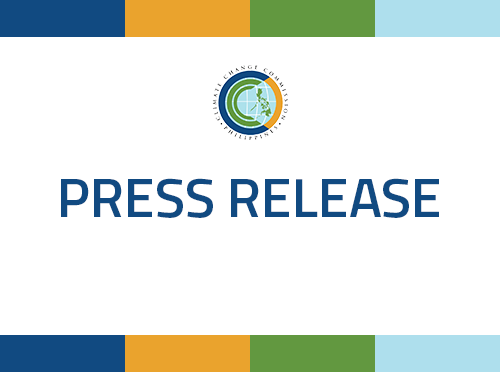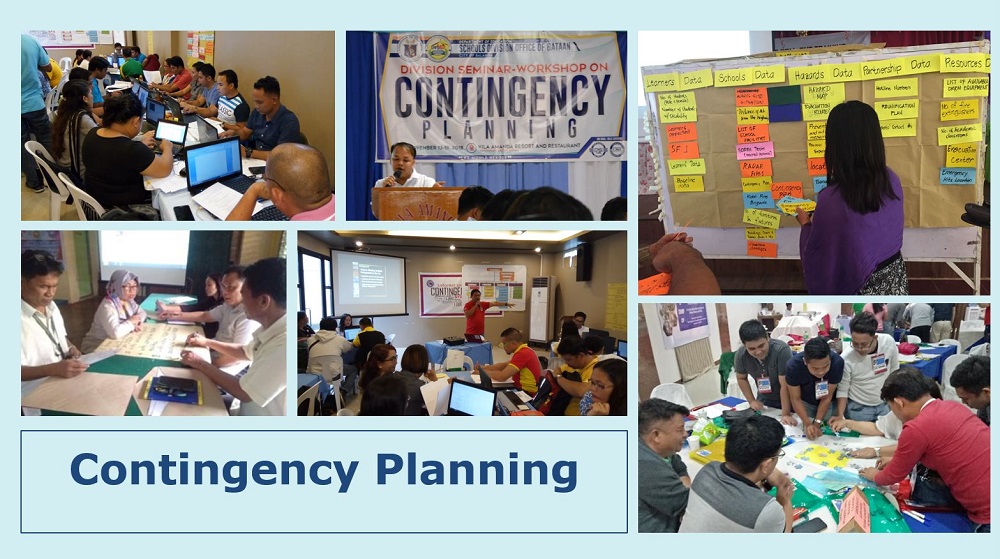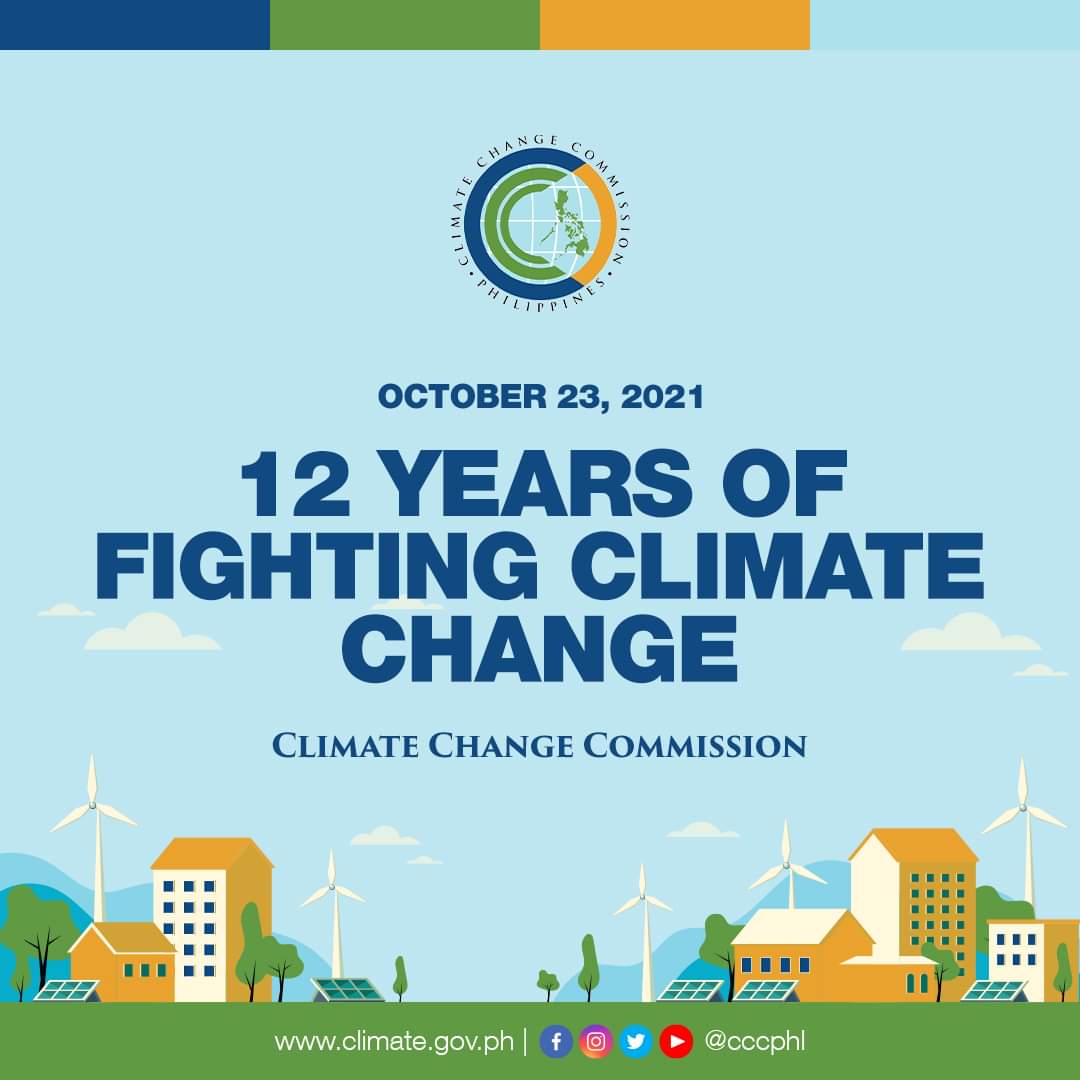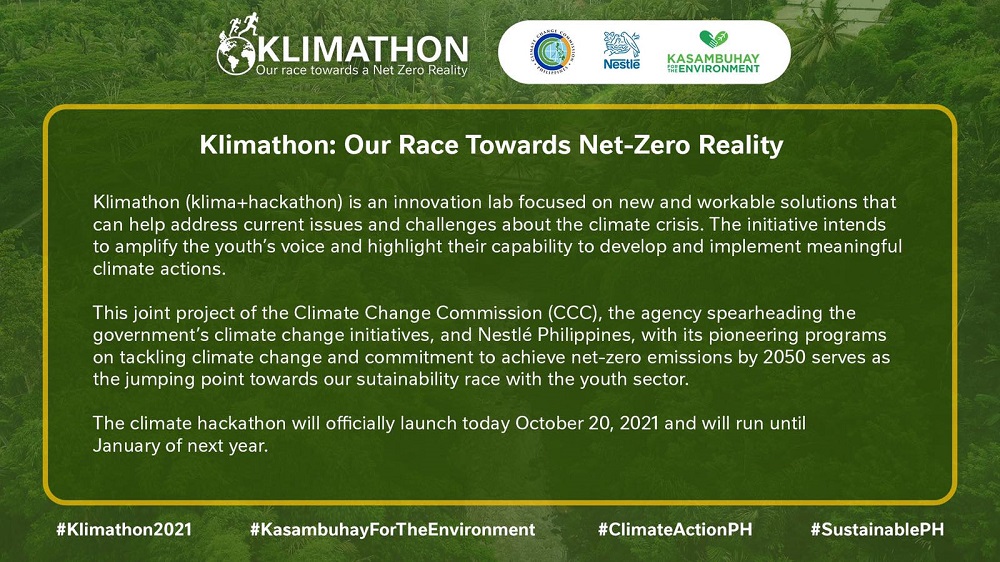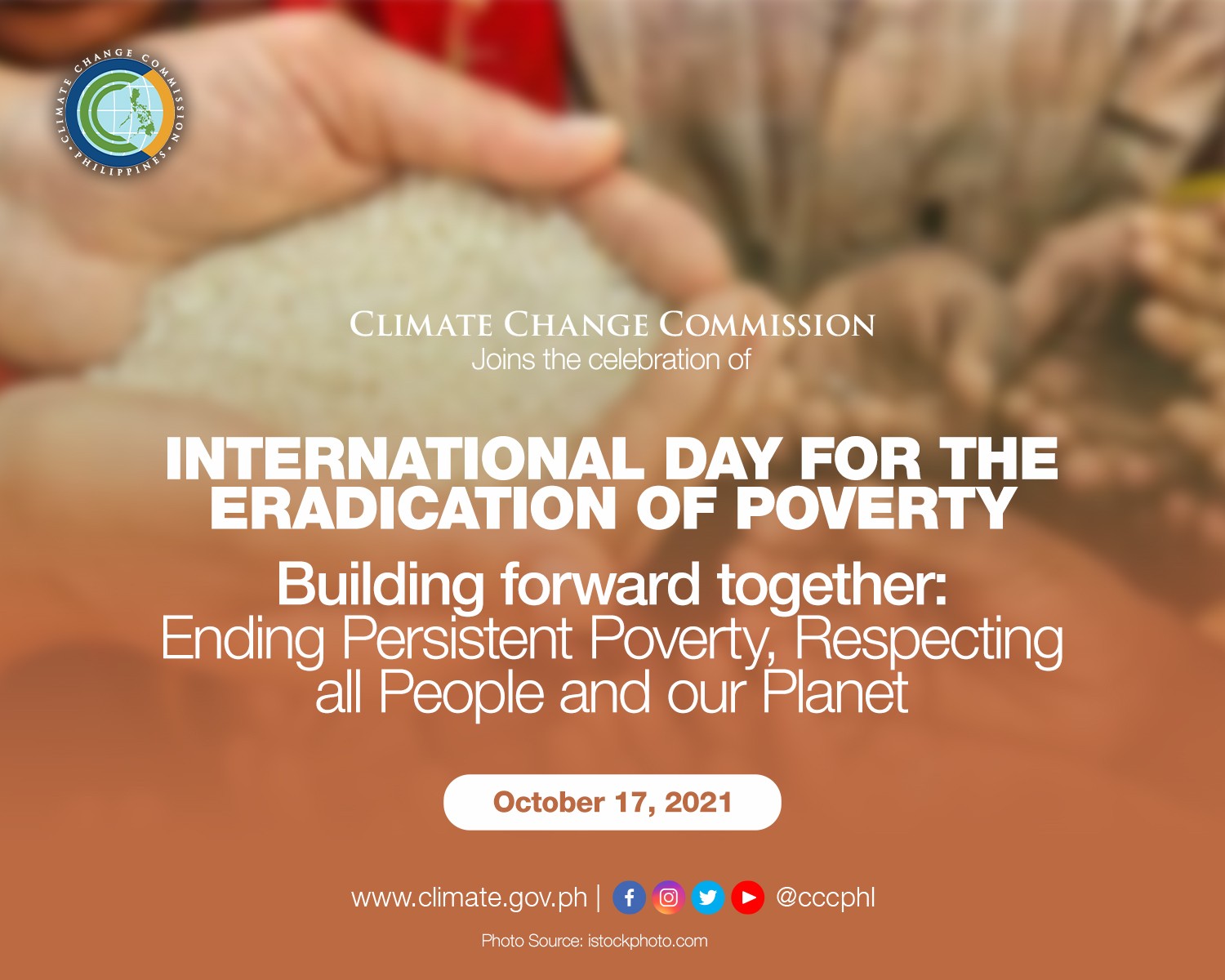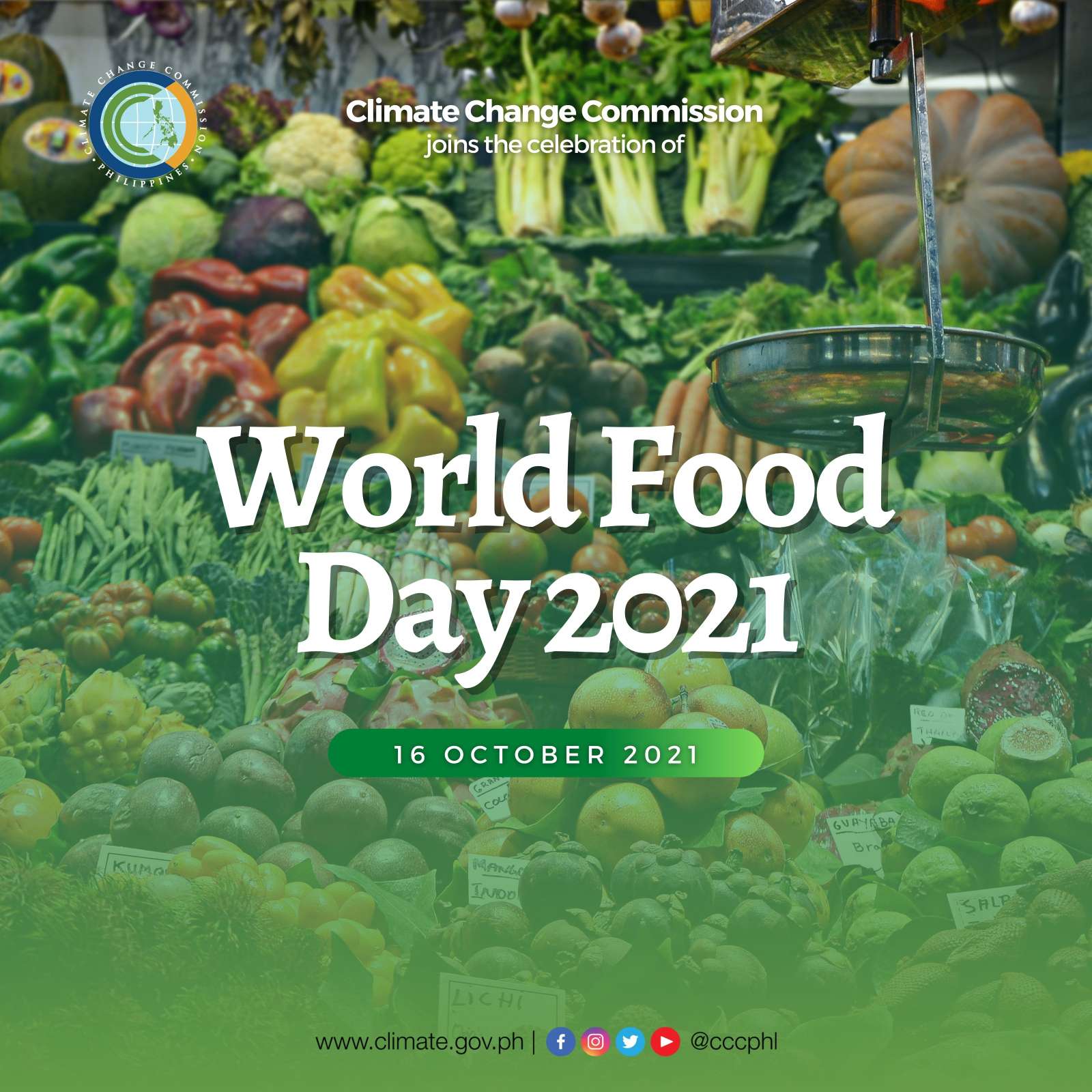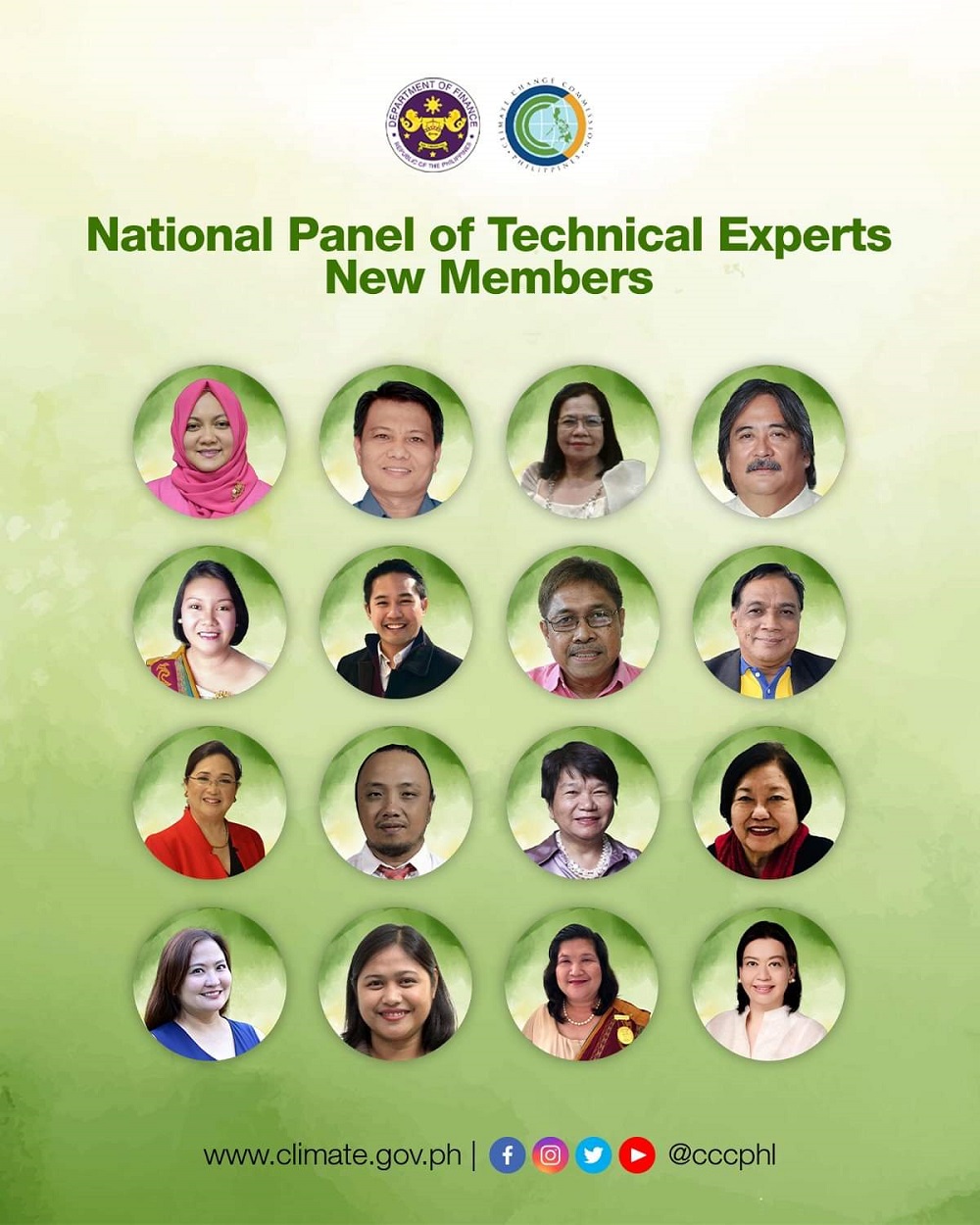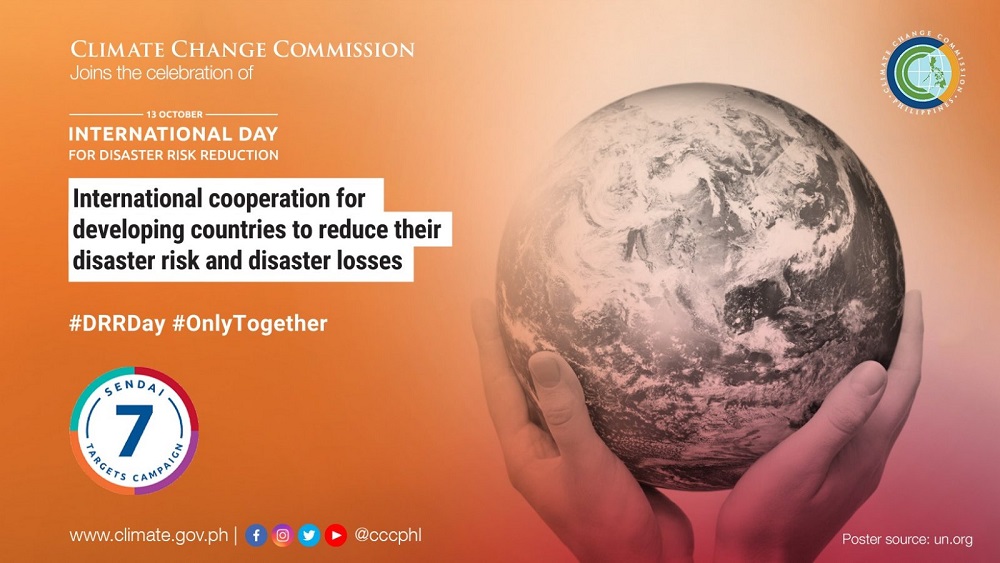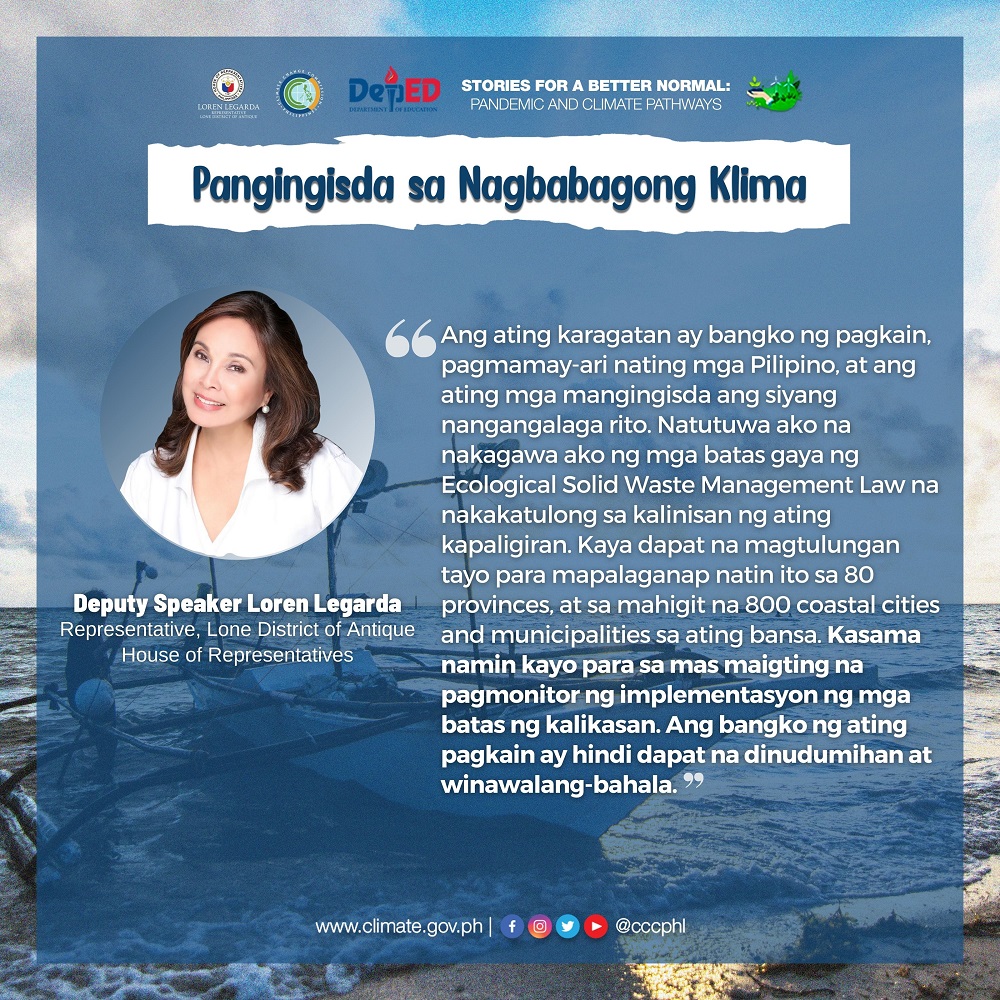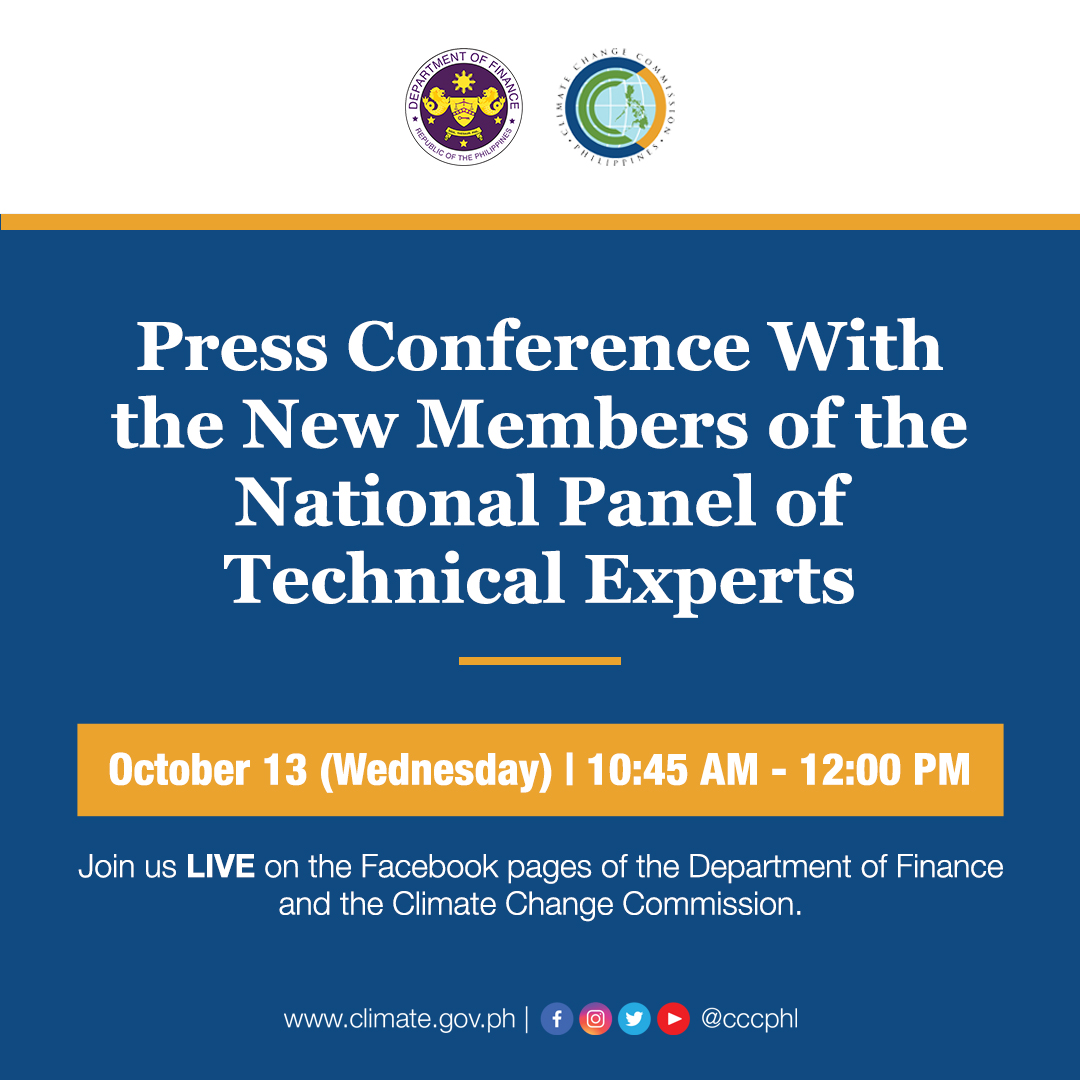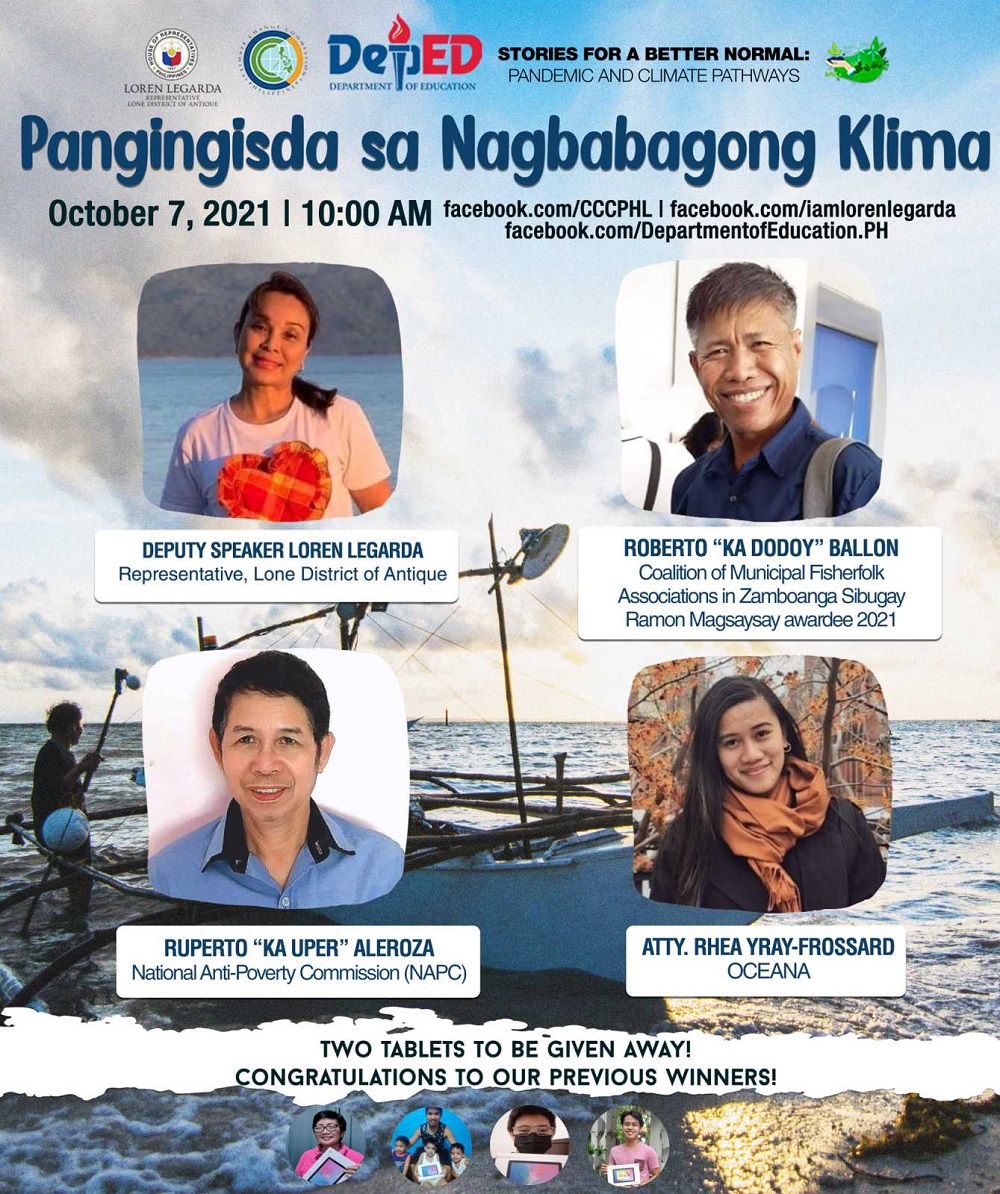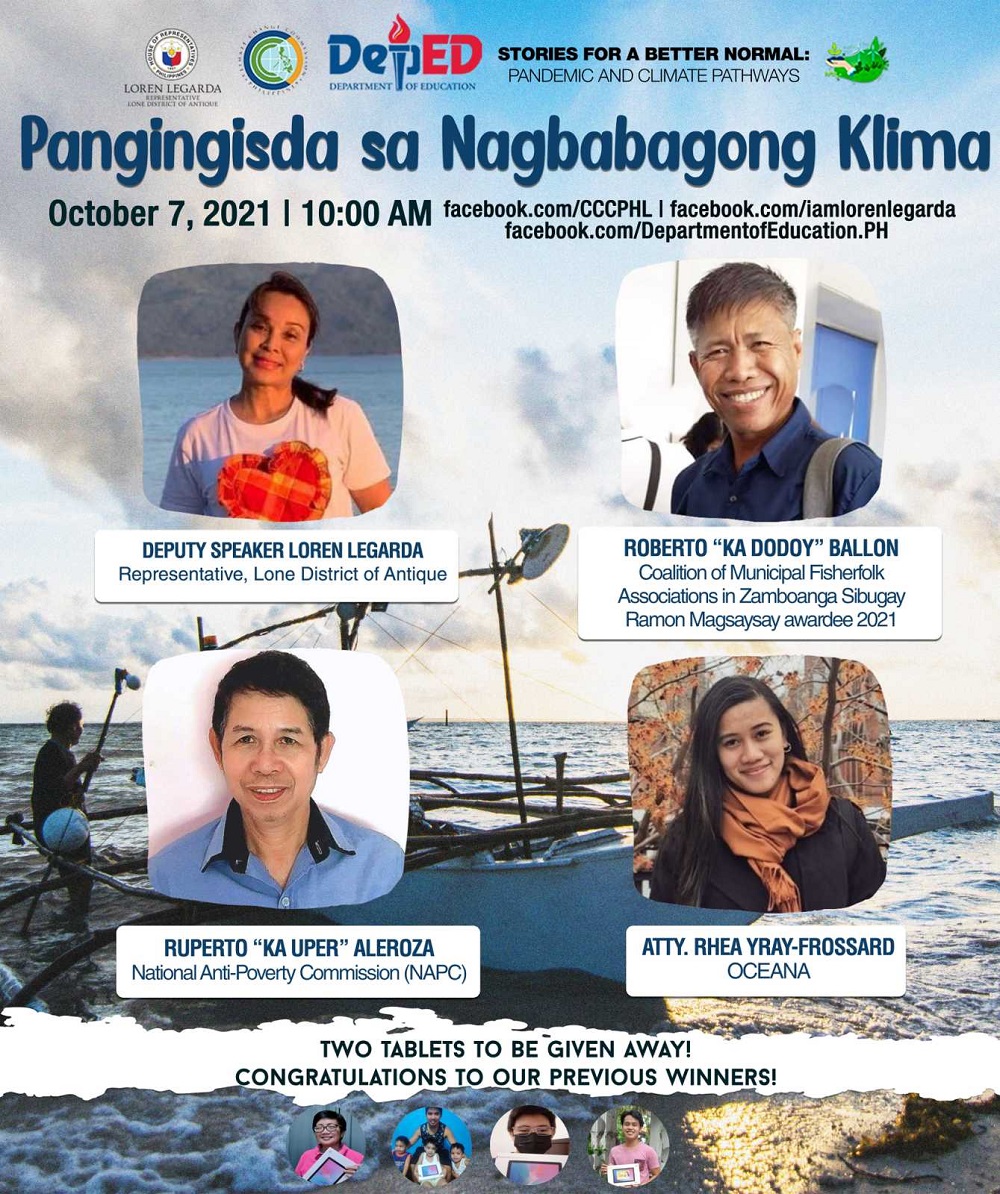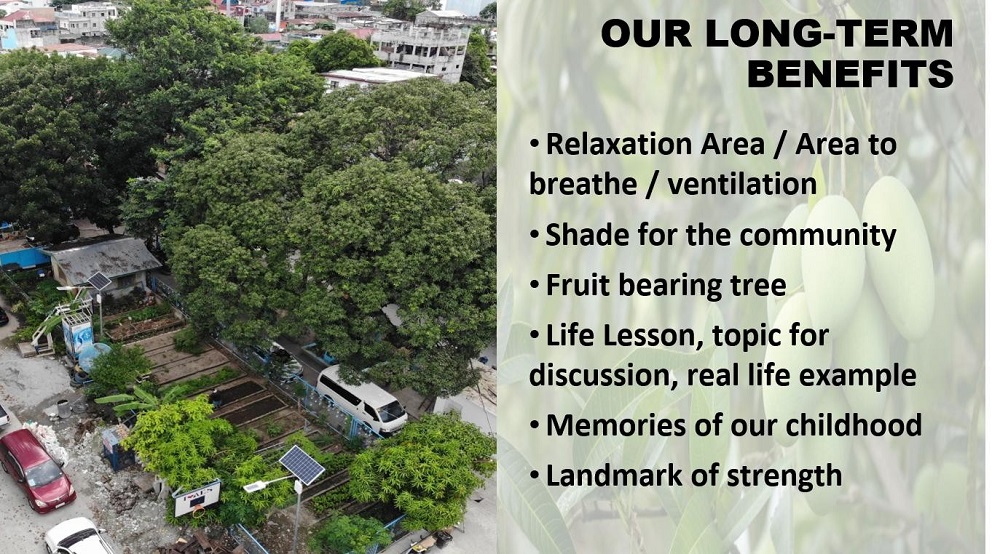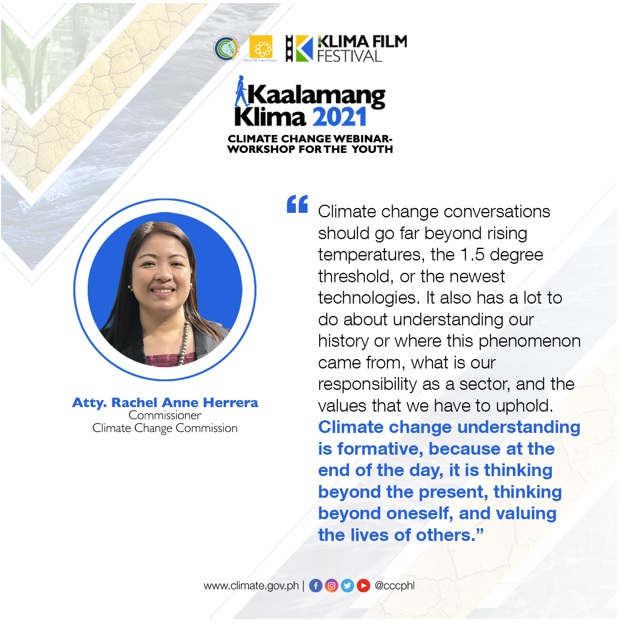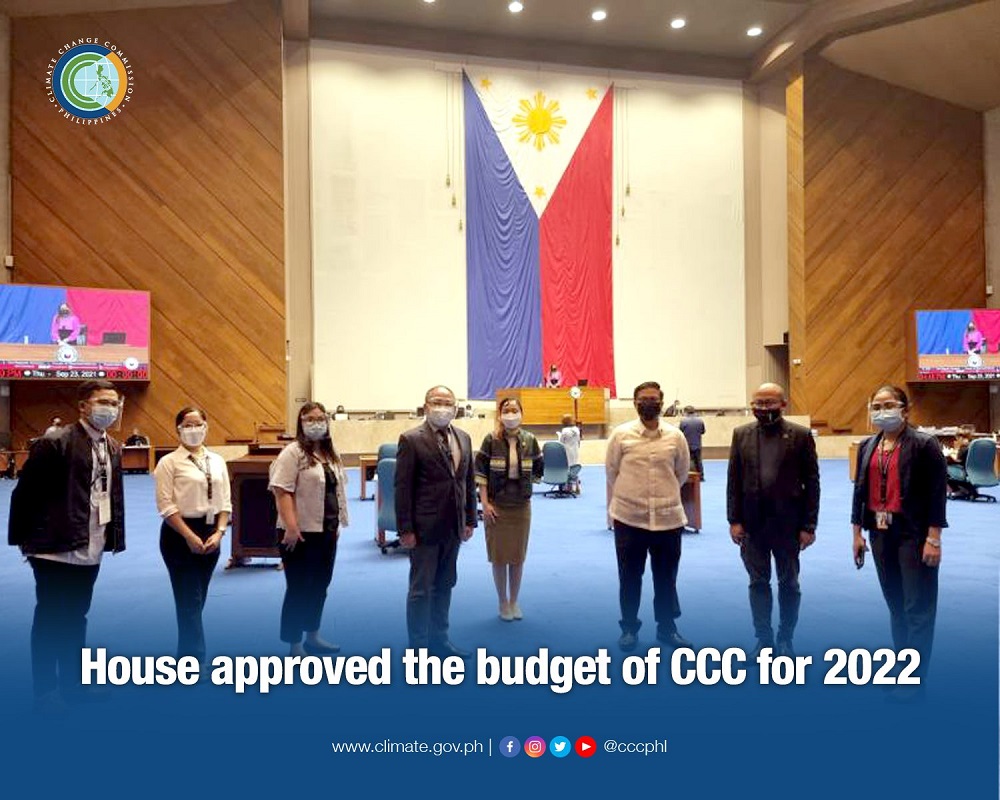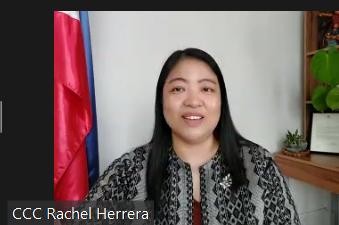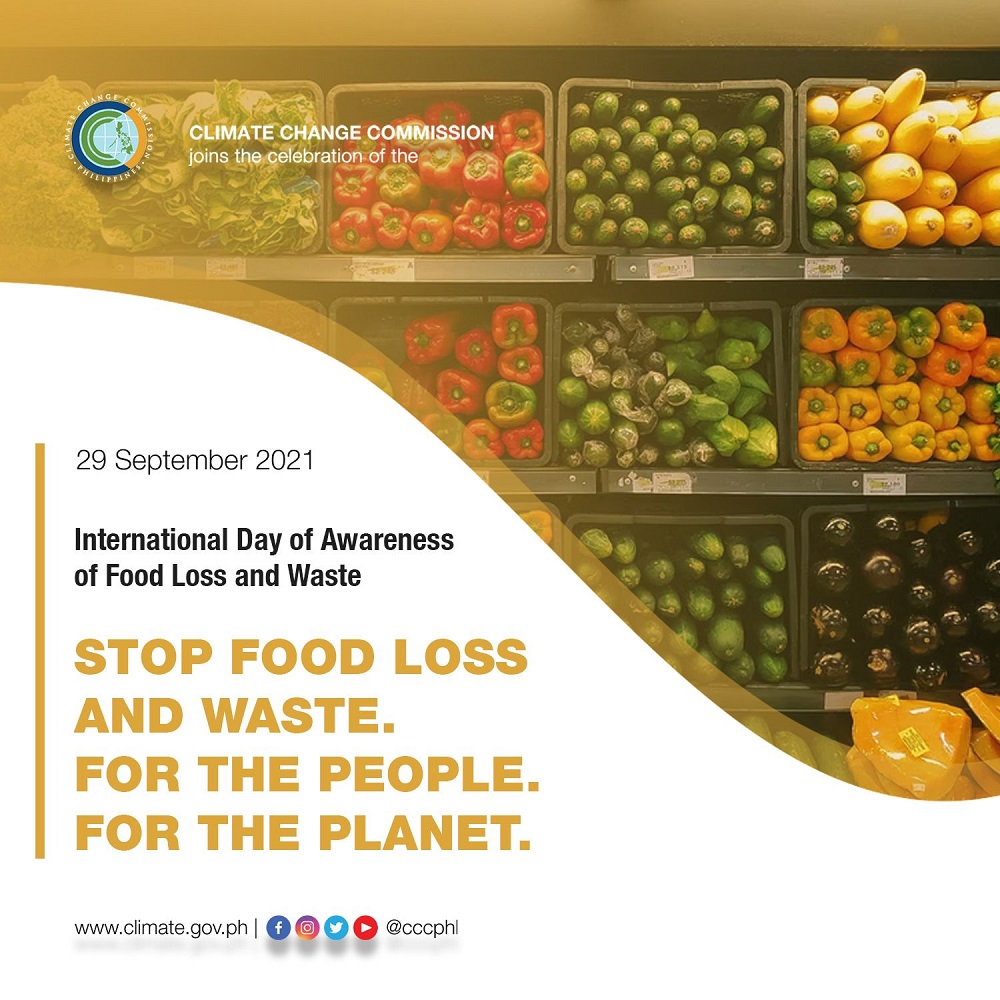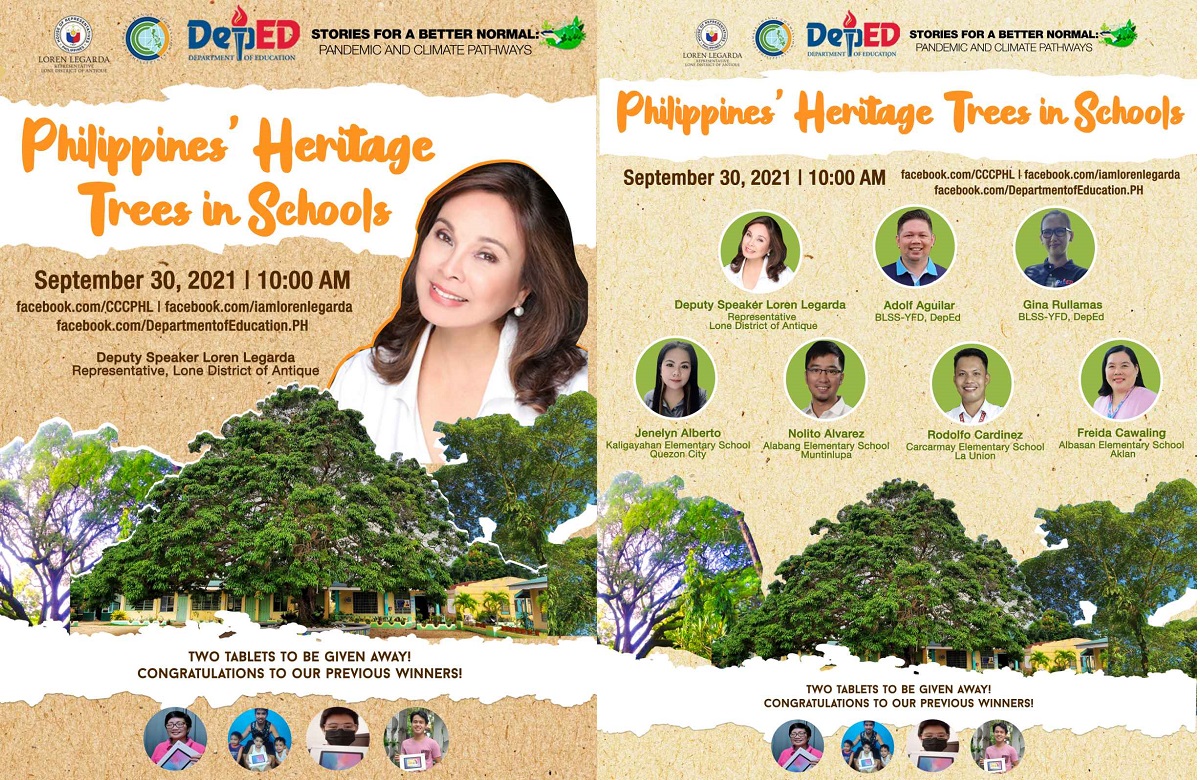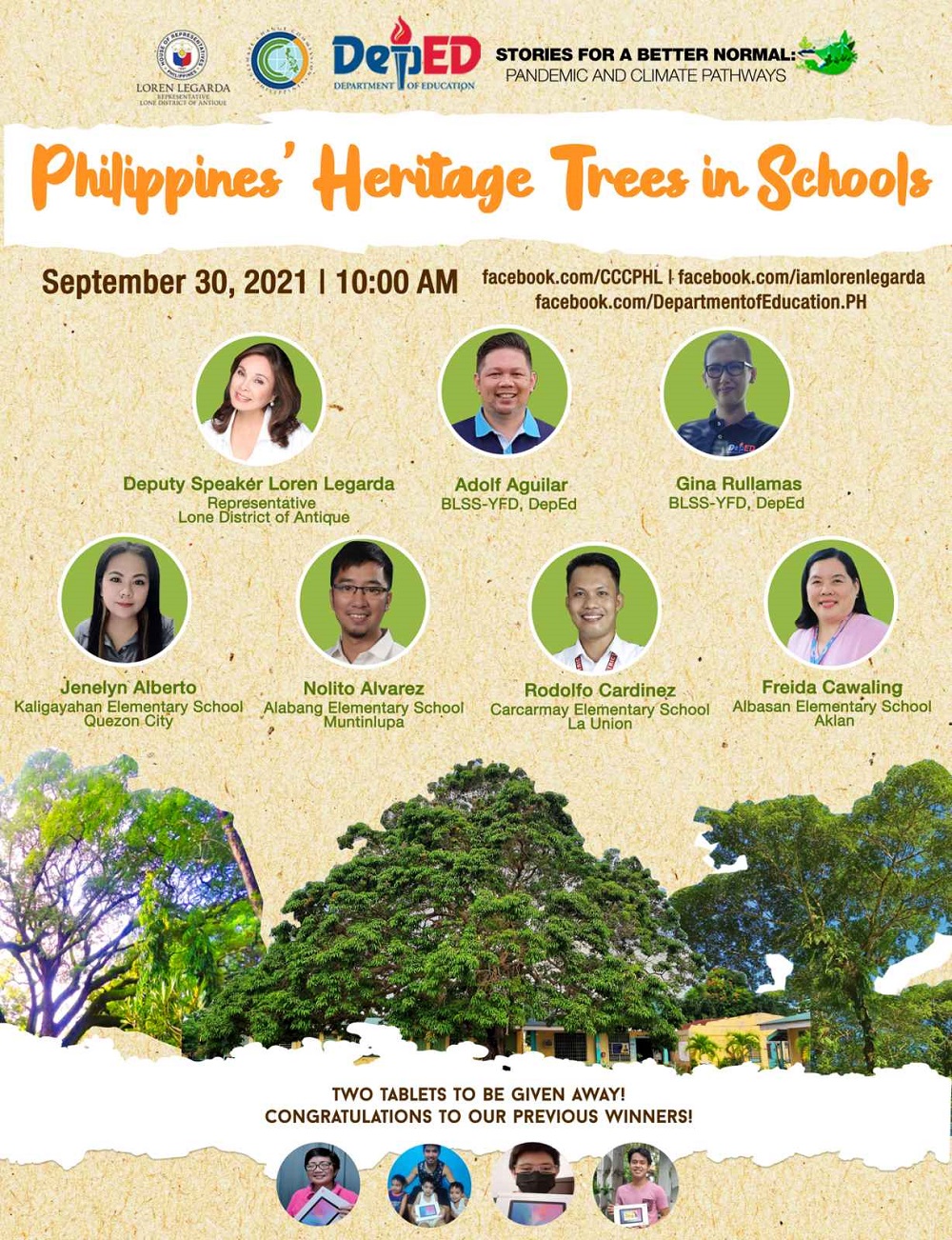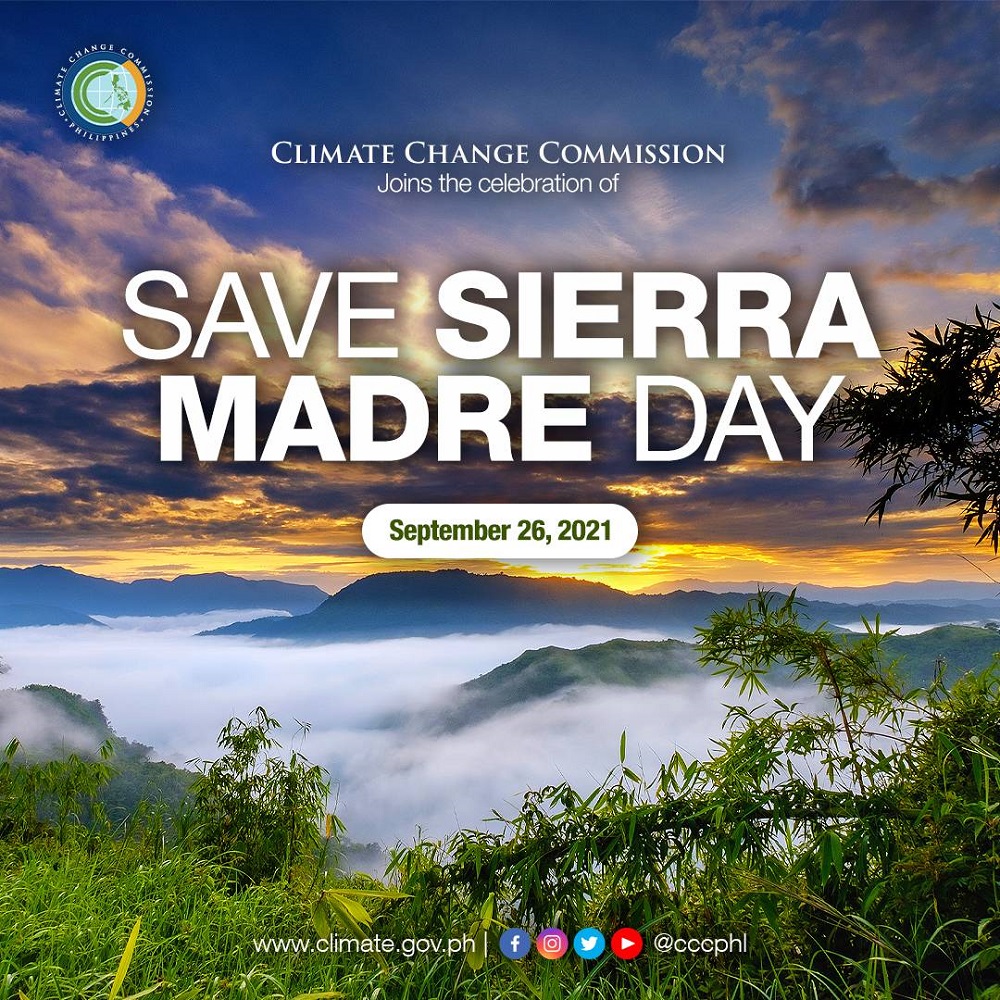MANILA, 15 October 2021 — The Climate Change Commission (CCC) welcomed the new set of its National Panel of Technical Experts (NPTE) in a press conference last October 13.
“We are no longer in the business of building a grand theory about climate change. We are now in the business of implementing concrete projects and programs to build the resilience of our communities, reverse the degradation, and protect our vital food sources. What is global must now be addressed at the local level. What was theoretical now demands practical applications on the ground,” said Department of Finance Secretary Carlos G. Dominguez III, Chairperson-designate of CCC, as he introduced the sixteen (16) new members of the panel.
Under the Climate Change Act of 2009, the NPTE provides technical advice to the Commission in climate science, technologies, and best practices for risk assessment and enhancement of the adaptive capacity of vulnerable human settlements to potential impacts of climate change.
This year, the panel was reconstituted to fill in with outstanding Filipino experts who are working on the ground and engaging with local communities in terms of climate change adaptation and mitigation, in line with the country’s change of paradigm to combat the effects of the climate crisis.
From 130 nominees screened by the Chairperson-designate and the three Commissioners of CCC, the following were selected:
1. Dr. Jihan H. Adil, environmental planning and engineering expert specializing in wastewater and climate change.from Zamboanga City. She is currently the National President of Society of Environmental Engineers and Head of the Department of Environmental Engineering, Western Mindanao State University;
2. Dr. Nathaniel R. Alibuyog, agricultural engineer specializing in land and water management, and Dean of the College of Engineering, Mariano Marcos State University in Batac, Ilocos Norte;
3. Dr. Zenaida L. Andrade, chemical engineer and Associate Professor and Program Coordinator of the Bachelor of Science in Environmental Science in Eastern Visayas State University in Tacloban City;
4. Dr. Wilfredo L. Campos, an expert in biological oceanography, coastal ecology and ecosystems, coral reef ecology, and fisheries. He is currently the Chair of the Division of Biological Sciences, University of the Philippines Visayas;
5. Dr. Gay D. Defiesta, who specializes in natural resource and agricultural economics, and currently a Professor at the University of the Philippines Visayas;
6. Dr. Ramon Lorenzo Luis R. Guinto is a staunch planetary health advocate and practitioner. Currently, he is an associate professor of the Practice of Global Public Health and Inaugural Director of the Planetary and Global Health Program of the St. Luke’s Medical Center College of Medicine;
7. Dr. Eduardo O. Mangaoang, an expert in upland, lowland, and coastal forest landscape restoration and conservation. Currently, he is a Professor and Director of the Regional Climate Change R&D Center of Visayas State University in Baybay, Leyte;
8. Dr. Jimmy T. Masagca, an expert in fisheries and mangroves, and Professor at the Catanduanes State University and Head of Research and Knowledge Management of the Pacific Island Institute for Pedagogy, Technology, Arts and Sciences;
9. Dr. Susan P. Mercado, an international public health and food security expert. She has served as Undersecretary of the Department of Health and current Director of the Food Systems and Resiliency Program at the Hawaii Public Health Institute, and Special Envoy of the President for Global Health Initiatives;
10. Dr. Richard N. Muallil, a marine scientist and a recognized expert in coastal resource management and marine protected areas. He is the Director of Continuing Education and Extension Services, Mindanao State University in Tawi-Tawi;
11. Dr. Doracie B. Zoleta-Nantes, a specialist in geography and hazards studies, and President of Southern Luzon State University in Lucban, Quezon Province;
12. Dr. Emma E. Porio, a specialist in climate and disaster vulnerability and gender assessment, and Professor Emeritus at the Department of Sociology and Anthropology, School of Social Sciences of the Ateneo de Manila University. She is also a Science Research Fellow of the Manila Observatory where she is Project Leader and Principal Investigator of the transdisciplinary action research project, "Coastal Cities at Risk: Investing in Climate and Disaster Resilience in the Philippines (CCARPH);
13. Dr. Patricia Ann J. Sanchez, a licensed agricultural engineer specializing in disaster risk management and water resource assessment. She is currently an Associate Professor and Chair of the Interdisciplinary Studies Center for Water (ISCW) at the University of the Philippines Los Baños;
14. Engr. Merriam M. Santillan, a geodetic engineer, and Dean of the College of Engineering and Geosciences at Caraga State University in Butuan City;
15. Dr. Encarnacion Emilia S. Yap, a post-harvest fisheries technology specialist, and Dean of the College of Fisheries and Ocean Sciences, University of the Philippines Visayas; and
16. Dr. Maria Angela G. Zafra, an expert in inclusive business models, sustainable finance, and gender inclusivity, and adjunct faculty at the School of Business and Governance, Ateneo de Davao University. She is the executive director of the Strategia Development Research Institute, a nonprofit research organization providing policy research, capacity building, and technical assistance in various social and economic development areas.
The CCC Commissioners also welcomed the new members of the panel.
"The science of climate change is unequivocal, its message to everyone is clear: We’re all in danger, our survival is at stake, and urgent action can still save us. I trust that our new assembly of experts will be truly generous in lending their knowledge and expertise and untiring in helping convey this compelling message of science down to the last mile,” said Secretary Emmanuel M. de Guzman.
"It is time to localize everything: It's not about concepts anymore, but this is bringing action now to the local level. That is actually the purpose of mainstreaming climate change action which, as expected, should not just linger on the nationwide scale, but translated into local actions with corresponding benefits,” said Commissioner Noel Antonio Gaerlan.
"The climate crisis is based on solid scientific analysis, but it is also best explained as a human-caused problem caused by collective behavior. Our accumulated carbon emissions in the atmosphere are products of fossil fuel-based technology and energy, and they are also borne out of human activity and choices. Together with the diverse roster of experts, we can make climate science accessible and understandable to our communities on the ground as tools for decision-making and investment planning,” said Commissioner Rachel Anne S. Herrera.
The Commission also expressed their gratitude to the former members of the panel, who served from 2015 up to September of this year.
To know more about the new NPTE, visit the CCC Facebook page at https://facebook.com/CCCPhl or its website at https://climate.gov.ph/our-story/our-experts/profiles-of-members.
October 14, 2021 Thursday

